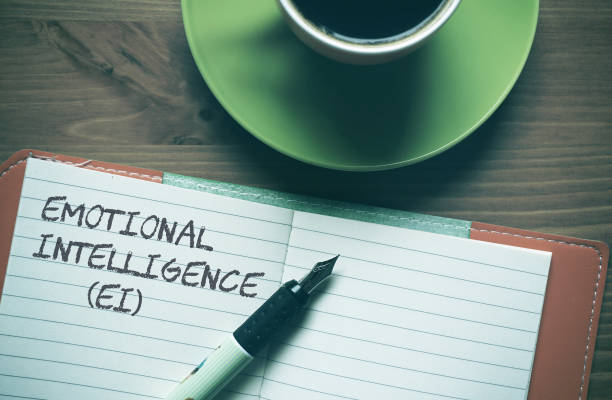When it comes to relationships and dating, knowing how to articulate the qualities you admire in a partner can significantly influence your search and expectations. This detailed guide will help you define and express the characteristics that make up your ideal type of guy, aiding you in navigating the dating world more effectively. We’ve divided the topic into nine specific sections, each delving into different attributes that might resonate with your personal preferences.
Understanding Core Values
Core values are fundamental beliefs that dictate behavior and can determine whether a relationship succeeds. When describing your type of guy, consider which values are non-negotiable for you.
Understanding Honesty
Honesty is a cornerstone of healthy relationships, reflecting truthfulness and transparency in interactions. It establishes trust and fosters open communication channels between partners.
- Definition: Honesty encompasses truthfulness, sincerity, and integrity in words and actions.
- Significance: It builds trust and credibility within the relationship, laying a foundation for mutual respect and understanding.
- Assessment: Evaluate how your potential partner handles situations that demand honesty. Look for consistency in communication and a willingness to address difficult topics openly.
Embracing Respect
Respect forms the bedrock of harmonious relationships, emphasizing the value of treating others with dignity and consideration. It transcends differences and fosters a culture of mutual acceptance.
- Definition: Respect involves acknowledging the worth and rights of others, irrespective of their background, opinions, or status.
- Significance: It creates a supportive environment where individuals feel valued and understood, enhancing the quality of interpersonal connections.
- Evaluation: Observe how your potential partner interacts with diverse individuals and situations. Pay attention to their demeanor and language to gauge their level of respectfulness.
Nurturing Loyalty
Loyalty is an essential element of enduring relationships, symbolizing commitment, reliability, and allegiance to the partnership. It strengthens bonds and fosters a sense of security and belonging.
- Definition: Loyalty entails staying faithful and devoted to the relationship, even in the face of challenges or temptations.
- Significance: It cultivates trust and emotional intimacy, fostering a deep sense of connection and partnership.
- Assessment: Reflect on your potential partner’s track record of commitment and reliability in past relationships. Consider their willingness to prioritize the relationship and demonstrate consistency in actions.
Cultivating Kindness
Kindness enriches relationships by fostering empathy, compassion, and generosity towards others’ feelings and needs. It creates a supportive atmosphere where individuals feel valued and cared for.
- Definition: Kindness involves extending empathy and compassion towards others, even in difficult circumstances.
- Significance: It promotes emotional well-being and strengthens bonds by demonstrating care and consideration for each other’s feelings.
- Evaluation: Pay attention to how your potential partner responds to situations that require empathy and support. Look for genuine concern and acts of kindness towards others.
Emotional Intelligence

Emotional intelligence is the ability to understand and manage one’s own emotions, as well as empathize with others. Here’s how to determine if emotional intelligence is a top quality of your type of guy:
Self-awareness
Self-awareness is the foundation of emotional intelligence, involving an individual’s ability to recognize and understand their own emotions, strengths, weaknesses, and values. It enables them to navigate interpersonal interactions with authenticity and insight.
- Definition: Self-awareness entails introspection and reflection on one’s emotions, thoughts, and behaviors.
- Significance: It fosters authenticity and emotional authenticity in relationships, laying the groundwork for genuine connections.
- Evaluation: Observe how your potential partner reflects on their emotions and acknowledges their impact on themselves and others. Look for signs of self-reflection and a willingness to explore personal growth opportunities.
Self-regulation
Self-regulation is the ability to manage and control one’s impulses, emotions, and behaviors, even in challenging situations. It enables individuals to respond thoughtfully rather than react impulsively, fostering emotional stability and resilience.
- Definition: Self-regulation involves managing emotional reactions and impulses, exercising restraint, and maintaining composure.
- Significance: It promotes emotional stability and adaptability, enhancing interpersonal communication and conflict resolution skills.
- Evaluation: Assess how your potential partner responds to stressful or provoking situations. Look for evidence of emotional control, resilience, and the ability to express feelings constructively.
Motivation
Motivation refers to the drive and enthusiasm to pursue personal and professional goals, including emotional growth and self-improvement. It fuels resilience, perseverance, and a proactive approach to overcoming challenges.
- Definition: Motivation involves setting and striving towards meaningful goals, fueled by passion, determination, and a growth mindset.
- Significance: It drives continuous self-improvement and resilience in the face of obstacles, enhancing overall well-being and fulfillment.
- Evaluation: Explore your potential partner’s aspirations, ambitions, and commitment to personal growth. Consider their willingness to learn from setbacks and embrace challenges as opportunities for development.
Empathy
Empathy is the ability to understand and share the feelings of others, demonstrating compassion, sensitivity, and a willingness to connect emotionally. It fosters deeper understanding, trust, and intimacy in relationships.
- Definition: Empathy involves perspective-taking and emotional resonance with others’ experiences, fostering connection and mutual understanding.
- Significance: It promotes compassion, trust, and effective communication in relationships, facilitating conflict resolution and emotional support.
- Evaluation: Observe how your potential partner responds to others’ emotions and experiences. Look for signs of active listening, validation, and genuine concern for others’ well-being.
Social Skills
Social skills encompass a range of abilities related to effective communication, interpersonal dynamics, and relationship management. They enable individuals to navigate social situations with ease and build meaningful connections with others.
- Definition: Social skills include verbal and nonverbal communication, conflict resolution, negotiation, and networking.
- Significance: They facilitate the establishment and maintenance of positive relationships, fostering collaboration, teamwork, and mutual respect.
- Evaluation: Assess your potential partner’s communication style, ability to resolve conflicts diplomatically, and capacity to build rapport with others. Consider their adaptability in various social contexts and their effectiveness in navigating interpersonal dynamics.
Ambition and Drive
Ambition is a powerful quality that indicates a desire to achieve and excel. When describing your type of guy, consider his aspirations and motivations.
Career Goals
Career goals encompass an individual’s long-term aspirations and ambitions within their professional sphere. They reflect a commitment to personal growth, success, and fulfillment in one’s chosen career path.
- Definition: Career goals entail specific objectives and milestones that individuals aim to achieve in their professional journey.
- Significance: They provide direction and motivation, driving individuals to pursue opportunities for advancement and fulfillment in their chosen field.
- Evaluation: Assess your potential partner’s clarity of career goals, ambition, and commitment to professional development. Consider their willingness to set and pursue ambitious targets and their alignment with your own career aspirations.
Personal Development
Personal development involves continuous self-improvement and growth through education, acquiring new skills, and pursuing hobbies or interests. It reflects a proactive approach to enhancing one’s capabilities and enriching life experiences.
- Definition: Personal development encompasses activities and initiatives aimed at expanding knowledge, skills, and abilities, both professionally and personally.
- Significance: It fosters resilience, adaptability, and a sense of fulfillment, empowering individuals to navigate life’s challenges and pursue their passions.
- Evaluation: Observe how your potential partner invests time and effort into personal growth and development. Consider their engagement in educational pursuits, skill-building activities, or hobbies that demonstrate a commitment to self-improvement.
Resilience
Resilience is the ability to bounce back from setbacks, adversity, and challenges with strength and determination. It reflects a mindset of perseverance, adaptability, and optimism in the face of obstacles.
- Definition: Resilience involves the capacity to withstand and recover from difficult circumstances, maintaining a positive outlook and sense of efficacy.
- Significance: It fosters mental toughness, emotional stability, and the ability to thrive amidst adversity, contributing to overall well-being and success.
- Evaluation: Assess how your potential partner handles setbacks, failures, and challenges. Look for signs of resilience, such as a positive attitude, perseverance, and a willingness to learn from setbacks and grow stronger.
Sense of Humor

A sense of humor can be a crucial quality in a partner. It’s not just about telling jokes but also about approaching life with a light-hearted perspective.
Compatibility
Compatibility in a sense of humor is essential for creating a harmonious and enjoyable relationship dynamic. It involves the alignment of comedic preferences, communication styles, and the ability to appreciate each other’s humor.
- Definition: Compatibility in sense of humor refers to the shared enjoyment of similar comedic styles, jokes, and playful banter.
- Significance: It fosters connection and intimacy, enabling partners to bond over shared laughter and joyous moments.
- Evaluation: Reflect on whether your potential partner’s sense of humor resonates with yours. Consider your shared laughter and enjoyment of humorous situations to gauge compatibility in this aspect.
Positivity
A positive sense of humor uplifts spirits and fosters a cheerful atmosphere within relationships. It involves using humor as a tool to lighten mood, relieve stress, and bring joy to oneself and others.
- Definition: Positivity in sense of humor entails using humor to spread happiness, boost morale, and maintain an optimistic outlook on life.
- Significance: It promotes emotional well-being and resilience, enhancing overall relationship satisfaction and bonding.
- Evaluation: Observe how your potential partner uses humor to uplift others and themselves. Pay attention to their tendency to find joy and laughter in everyday situations and their ability to share humorous moments with you.
Adaptability
Adaptability in sense of humor reflects the ability to find amusement and levity in various situations, including challenges and setbacks. It involves a flexible and open-minded approach to humor, allowing for spontaneity and creativity in comedic expression.
- Definition: Adaptability in sense of humor refers to the capacity to adjust comedic responses based on different contexts and circumstances.
- Significance: It promotes resilience and stress relief, enabling partners to navigate difficult situations with grace and positivity.
- Evaluation: Assess how your potential partner responds to different situations with humor. Consider their ability to find amusement and laughter even in challenging or mundane circumstances, indicating adaptability in their sense of humor.
Physical Attraction
While physical attraction is subjective, it is undeniably significant when describing your type of guy. Here are some aspects to consider:
Appearance
Physical appearance encompasses a range of attributes that individuals find visually appealing and attractive in a partner. These may include features such as facial symmetry, body proportions, hairstyle, and grooming habits.
- Definition: Appearance refers to the outward physical characteristics and aesthetics of an individual, including facial features, body shape, and style.
- Significance: It influences initial attraction and serves as a visual cue for assessing compatibility and suitability in a potential partner.
- Considerations: Reflect on your preferences regarding physical traits that attract you, such as height, build, facial structure, and personal style.
Presence
Presence encompasses how an individual carries themselves and exudes confidence, charisma, and magnetism in social interactions. It reflects their demeanor, body language, and overall aura.
- Definition: Presence refers to the way an individual presents themselves and engages with others, conveying confidence, poise, and authenticity.
- Significance: It influences attraction and creates a compelling allure that draws others towards them, fostering intrigue and interest.
- Observations: Pay attention to how your potential partner carries themselves, their posture, gestures, and level of confidence in social settings.
Health and Fitness
Health and fitness denote an individual’s commitment to maintaining physical well-being through regular exercise, proper nutrition, and healthy lifestyle choices. It reflects vitality, energy, and self-care habits.
- Definition: Health and fitness encompass the maintenance of physical health, strength, and endurance through exercise, diet, and lifestyle practices.
- Significance: It contributes to overall attractiveness and longevity in relationships, fostering vitality, and well-being.
- Assessment: Consider whether your potential partner prioritizes physical fitness, engages in regular exercise, and demonstrates healthy lifestyle habits.
Lifestyle Compatibility

Lifestyle compatibility plays a critical role in ensuring long-term relationship success.
Daily Routines
Daily routines encompass the habits, schedules, and activities that individuals engage in on a regular basis. Compatibility in daily routines involves aligning schedules, preferences, and responsibilities to ensure smooth coordination and mutual support.
- Definition: Daily routines refer to the habitual activities, tasks, and schedules individuals follow in their day-to-day lives.
- Significance: They influence how partners interact and spend time together, shaping the rhythm and dynamics of the relationship.
- Considerations: Reflect on your own daily routines and habits, as well as those of your potential partner, to assess compatibility in terms of scheduling, lifestyle preferences, and priorities.
Interests
Shared interests and hobbies play a crucial role in fostering connection, bonding, and mutual enjoyment within relationships. Compatibility in interests involves finding common ground and shared activities that both partners enjoy and engage in together.
- Definition: Interests refer to activities, hobbies, and passions that individuals find enjoyable and engaging.
- Significance: Shared interests facilitate bonding, create opportunities for quality time together, and strengthen the emotional connection between partners.
- Assessment: Explore common interests and hobbies that you and your potential partner share or are interested in exploring together, considering compatibility in leisure activities and shared pursuits.
Social Life Balance
Balancing social activities with personal time is essential for maintaining individual well-being and nurturing the relationship. Lifestyle compatibility in terms of social life balance involves understanding each other’s social needs, preferences, and boundaries.
- Definition: Social life balance refers to the equilibrium between engaging in social activities and nurturing personal time for rest, relaxation, and self-care.
- Significance: It promotes individual well-being, strengthens the relationship bond, and fosters respect for each other’s need for autonomy and connection.
- Evaluation: Assess how your potential partner balances social engagements with personal time and whether their approach aligns with your own preferences and boundaries.
Communication Skills
Effective communication is the cornerstone of any relationship. Here’s what to look for when describing your type of guy:
Clarity
Clarity in communication refers to the ability to express thoughts, feelings, and intentions clearly and effectively. It involves using language that is easy to understand, avoiding ambiguity or misinterpretation in interpersonal interactions.
- Definition: Clarity entails articulating thoughts and ideas in a straightforward and understandable manner.
- Significance: It promotes mutual understanding, reduces misunderstandings, and fosters effective communication.
- Observations: Pay attention to how your potential partner communicates verbally and non-verbally, assessing their ability to convey messages clearly and coherently.
Listening Skills
Listening skills are essential for fostering empathy, understanding, and mutual respect in relationships. It involves actively engaging with others’ perspectives, emotions, and needs, rather than solely focusing on one’s own viewpoint.
- Definition: Listening skills encompass the ability to attentively and empathetically understand others’ thoughts, feelings, and concerns.
- Significance: They facilitate effective communication, promote trust and connection, and reduce conflicts and misunderstandings.
- Assessment: Observe how your potential partner engages in conversations, paying attention to their ability to listen attentively, validate others’ feelings, and respond empathetically.
Conflict Resolution
Conflict resolution skills are crucial for navigating disagreements and resolving conflicts constructively within relationships. It involves addressing conflicts calmly, assertively, and collaboratively, with a focus on finding mutually satisfactory solutions.
- Definition: Conflict resolution skills entail the ability to manage and resolve disagreements and conflicts in a respectful and constructive manner.
- Significance: They promote relationship harmony, strengthen trust and intimacy, and foster personal growth and understanding.
- Evaluation: Assess how your potential partner handles conflicts and disagreements, considering their approach to communication, problem-solving, and compromise.
Relationship Goals

Understanding his relationship goals can help you determine if he’s a good match for the long term.
Commitment
Commitment is a cornerstone of successful long-term relationships, reflecting dedication, loyalty, and investment in mutual growth and support. Assessing a potential partner’s views on commitment provides insights into their readiness for a committed relationship.
- Definition: Commitment entails a willingness to prioritize and invest in a relationship, despite challenges or obstacles that may arise.
- Significance: It fosters trust, security, and emotional intimacy, laying the foundation for a strong and enduring partnership.
- Assessment: Reflect on whether your potential partner expresses a desire for a committed relationship and demonstrates consistency in their actions and words regarding long-term commitment.
Family Planning
Family planning encompasses an individual’s perspectives on marriage, children, and future familial responsibilities. Understanding a potential partner’s views on family planning is crucial for assessing compatibility and shared aspirations.
- Definition: Family planning involves decisions and considerations related to marriage, parenthood, and raising a family.
- Significance: It influences the trajectory of the relationship, shaping decisions about shared goals, lifestyle choices, and long-term commitments.
- Evaluation: Explore your potential partner’s attitudes towards marriage, parenthood, and family life, considering their willingness to discuss and align on future plans.
Partnership
Viewing relationships as partnerships emphasizes equality, mutual respect, and collaboration between partners. Assessing whether a potential partner shares this perspective provides insights into their willingness to contribute to a balanced and harmonious relationship dynamic.
- Definition: Partnership in relationships involves shared decision-making, responsibilities, and mutual support, with both parties contributing equally to the relationship’s success.
- Significance: It fosters teamwork, cooperation, and a sense of shared purpose, promoting harmony and fulfillment within the relationship.
- Observations: Observe how your potential partner approaches collaboration, compromise, and shared decision-making, assessing their commitment to nurturing a partnership-based relationship.
Conclusion
When you describe your type of guy, it’s vital to consider a mix of qualities that align with your personal values, lifestyle, and relationship goals. This thoughtful consideration will guide you toward more fulfilling and compatible partnerships.
FAQ
A1: Physical attraction, while important, is just one aspect of what may draw you to someone. It often works in tandem with emotional and intellectual connections.
A2: Yes, as people grow and experience life, their preferences and what they value in a partner can evolve.
A3: While some flexibility is normal, it’s crucial not to compromise on core values and essential qualities you need in a relationship.
